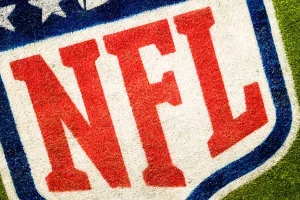Everyone has their guilty pleasures, I suppose. Maybe you keep up with the Kardashians or police dramas. For me, my guilty pleasure is the National Football League. I do not follow other professional sports, and I really do not even pay that close attention to college football (Coach Prime and CU Buffs Football being the one exception. But I really love the National Football League. I like the sport, the strategy, the business side, all of it really. So it is worth taking a sociology of sport perspective to look at the NFL.
It is a GUILTY pleasure for a reason. Obviously the game is dangerous and violent, the business side can be cutthroat, and there are plenty of other ways of viewing the National Football League through a critical lens. So, despite my love of the sport, I would like to take a look at the sociology of the National Football League.
The National Football League (NFL) is one of the most popular and successful sports leagues in the world. It is also a rich source of sociological insights. By examining the NFL through a sociological lens, we can gain a deeper understanding of the complex interplay between sports, society, and culture.
Social Stratification in Football
One of the most important contemporary sociological concepts that can be applied to the NFL is social stratification. Social stratification refers to the system of social hierarchy that exists in society. It is based on factors such as race, ethnicity, gender, class, and occupation.
Social stratification is evident in the NFL in a number of ways. For example, black players are disproportionately represented in the league, while white players are more likely to be quarterbacks and other high-profile positions. In other words white players are more likely to be in positions that require “intelligence” or thinking. Obviously, all NFL players have to be skilled and intelligent in regard to the game they play, but some positions are thought to consider high intelligence and processing. Often players in these positions are white.
Race and Ethnicity and the Sociology of Sport
Race and ethnicity are other important sociological concepts that can be applied to the NFL. Race and ethnicity refer to the social categories that people are assigned to based on their physical appearance and cultural background.
Race and ethnicity play a significant role in the NFL. For example, black players are more likely to be subjected to racial profiling and discrimination by referees and fans. Additionally, black players are less likely to be hired as head coaches and other high-level positions in the league.
Gender and the NFL
Gender is another important sociological concept that can be applied to the NFL. Gender refers to the social roles and expectations that are associated with being male or female.
The NFL is a very male-dominated sport. Women are largely excluded from the league as players, coaches, and officials. However, women do play an important role in the NFL as fans, dancers, and administrators. Although, people in these positions are paid less than executives and players, so there is still gender inequality going on.

Socialization and the National Football League
Socialization is another important sociological concept that can be applied to the NFL. Socialization refers to the process by which individuals learn the norms, values, and expectations of their society.
The NFL plays a major role in the socialization of young people. Through their exposure to the league through television, radio, and social media, young people learn about the values of competition, teamwork, and masculinity.
The NFL can also act as a form of socialization for the players. Players in the NFL come from a variety of backgrounds, but regardless of background NFL players are cast into the public eye. The NFL takes steps to train players regardless of background how to best perform in front of the cameras.
The Sociology of Sport and Globalization
Globalization is another important sociological concept that can be applied to the NFL. Globalization refers to the process by which societies and economies around the world become increasingly interconnected.
The NFL is a global sport. The league has played games in the United Kingdom, Germany, and Mexico, and its games are televised in over 200 countries. The NFL’s global reach allows it to spread its values and culture to people all over the world.
Examples of Sociological Concepts in the NFL
The following are some specific examples of how sociological concepts can be applied to the NFL:
Social stratification: In 2020, the average salary for a black NFL player was $1.8 million, while the average salary for a white NFL player was $2.2 million. This suggests that black players are paid less than white players, even when controlling for factors such as performance and experience.
Race and ethnicity: In 2022, there were only three black head coaches in the NFL out of 32 teams. This suggests that black coaches are underrepresented in the league.
Gender: In 2023, there are no female head coaches or general managers in the NFL. This suggests that women are excluded from high-level positions in the league.
Socialization: The NFL’s youth football program teaches young people about the values of competition, teamwork, and masculinity.
Globalization: The NFL’s international games and television deals allow the league to spread its values and culture to people all over the world.
Final Thoughts on this Case in the Sociology of Sport
The NFL is a complex social institution that is influenced by a variety of sociological factors. By examining the NFL through a sociological lens, we can gain a deeper understanding of the ways that sports, society, and culture intersect.
For more analysis of the National Football League, check out these other titles from Applied Worldwide.







